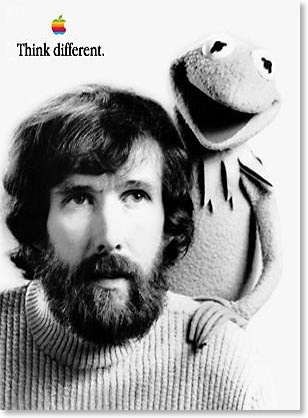What Is It with Apple and Grammar?
When I was in high school, none of my teachers would have allowed me to use the sentence above from Apple’s newest iPod touch campaign.
Technically, there are at least two problems with the ad. First, the period implies that the text is more than a label or description, but rather an actual sentence. Yet, if I were grading a paper and saw this exact text, I would label it an “incomplete sentence.” Of course advertisers regularly add periods to text such as this to give a description a sense of finality. Essentially this is shorthand for saying “[This iPod is] the funnest iPod ever.”
Second, there’s a problem with the word funnest, which technically isn’t a word at all. According to traditional English language rules, funner and funnest are not words. If a writer wants to use a comparative or superlative form of fun, correct usage dictates the selection of more fun and most fun, respectively.
Of course, using either of the correct forms makes for awkward advertising copy:
The most fun iPod ever.
or more correct:
This iPod is the most fun iPod ever.
or perhaps Apple could have just said
My new iPod is a lot more fun than your old iPod.
Okay, I can see where correct grammar doesn’t always make for good advertising. And I also have to assume that Apple’s advertisers aren’t uneducated, and they fully realize they are breaking the rules of good usage. Since Apple Macintosh computers come with a software dictionary based upon The New Oxford American Dictionary, I had to wonder what Apple’s own software would say about using the word funnest.

Well, according to Apple’s own internal dictionary, the usage for the word fun may indeed be changing. Note the last sentence: “The adjectival forms funner and funnest have not ‘arrived’ in all the dictionaries, however, and if employed at all, they should be used sparingly and not in formal written English.” Okay, fair enough. Advertising copy is not necessarily a formal context--at least not in regard to this advertisement.
When I teach writing classes, I strongly enforce the rules of grammar and usage because I feel that the parameters given in students’ textbooks offer a foundation for writing that can be modified later in appropriate contexts. I tell my students that great writers know when to bend the rules of grammar accordingly. For instance, Shakespeare regularly invented words when the glossary of his day didn’t express his intention (such as the adjective form of “alone,” lonely). Tolkien will occasionally use a double negative in The Lord of the Rings, but he does so with purpose in order to create a positive meaning from the combined words. A sentence like “It was a dark and stormy night” is not only cliched, but also begins with a pronoun lacking an antecedent. Nevertheless, Madeleine L'Engle could begin A Wrinkle in Time with those very words because she knew what she was doing and was an established writer by the time she wrote that book.
Even Apple’s detractors usually admit that the company makes great products--often products that set the parameters of the playing field for their competitors. So, perhaps they can get away with phrasings that would quickly be marked off on one of my students’ papers. And this is not the first time Apple has been known to break grammatical rules. English teachers gritted their teeth over the “Think Different” campaign in the late nineties (think is a verb and would require the adverb differently, not the adjective different).

Nevertheless, if you are one of my students reading this, stay away from funnest or I’ll mark it accordingly!










